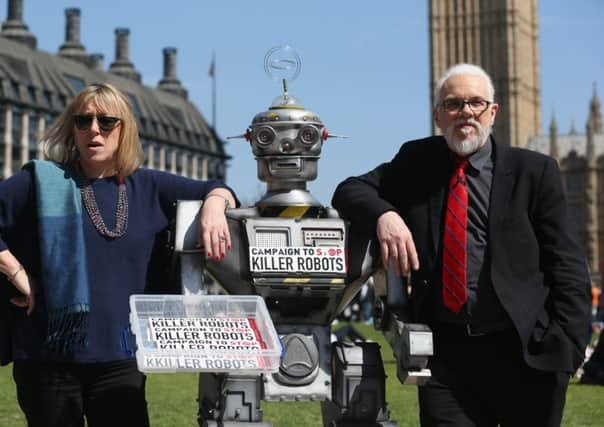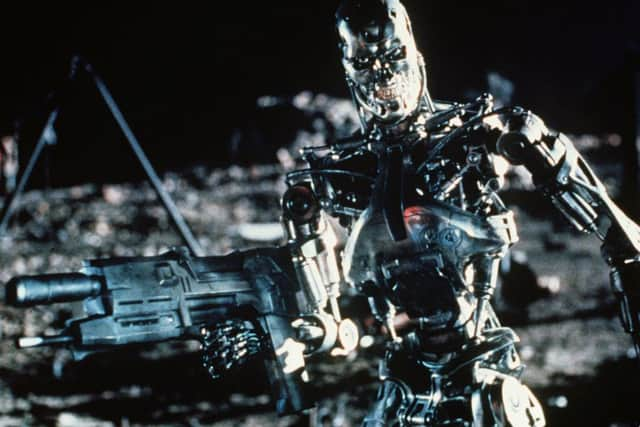Stop the killer robots, warns professor


They were demonised in Hollywood blockbuster The Terminator, in which Arnold Schwarzenegger played a cyborg sent from 2029 to assassinate a woman whose unborn son would lead humanity in a battle against machines.
That plot may have seemed far-fetched, but tomorrow Professor Noel Sharkey, one of the world’s leading campaigners fighting to ban the use of killer robots, or lethal “fully autonomous weapons”, is due to give a lecture in Edinburgh – “Robotic Right And Wrong” – on his battle to establish an international treaty to prohibit the development of such weapons.
Advertisement
Hide AdAdvertisement
Hide AdProf Sharkey, a roboticist and chair of the International Committee for Robot Arms Control, a non-government organisation seeking limits on robotic military hardware, will tell an audience at the 2015 Edinburgh International Science Festival that governments need to take urgent action to address the rapidly developing technology.


Over the past decade warfare has changed drastically with the increasing use of unmanned armed vehicles and drones. Campaigners argue such developments pose a threat to civilians, with implications for humanitarian law.
They also fear a robotic arms race, in which countries with high-tech military capabilities such as the UK, the US, China, Israel and Russia, abandon restraint if another power deploys the weapons.
“While they are at the beginning of development, there are a number of precursors around at the moment,” Prof Sharkey said. “One of the dangers is ‘spoofing’, where robotic weapons signals can be interfered with, meaning that a child or civilian is killed instead of a soldier and to a disproportionate response.
“Someone put the weapons on site, but who is responsible for mishaps when weapons are hacked? Some countries argue they always ‘have a human in the control loop’ but how effective is this?”
The current generation of autonomous weapons include the Mantis from Germany, a short-range air defence projection system which detects, tracks and shoots down projectiles, the Patriot surface-to-air missile interceptor system in Israel and the US’s X-47B unmanned aircraft demonstrator which can almost fly a mission by itself with no instructions from a ground-based pilot.
Prof Sharkey will give evidence at the UN’s multilateral meeting on lethal autonomous weapons in Geneva this month.
Colonel Bob Stewart, a former British UN commander who served in Bosnia, said: “We’ve always had systems which operate on that principle and they will be developed if they do save our soldiers’ lives. But they must be governed by the rules of war and removed when no longer needed.”
“Robotic Right And Wrong’, Summerhall, 6 April, 5.30pm. Tickets £4-£8.